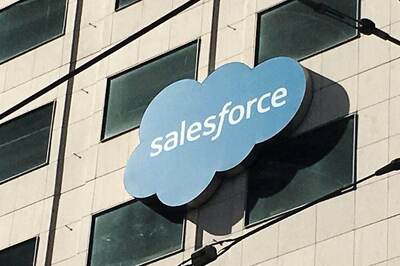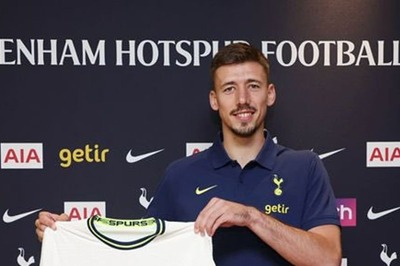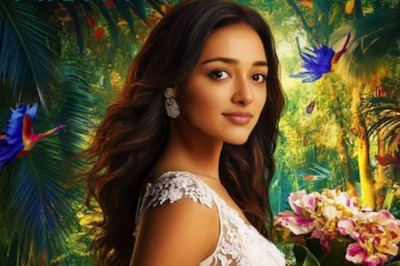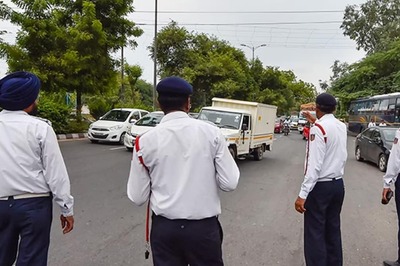
views
What does “wagwan” mean?
Wagwan is an informal greeting that means “What’s going on?” Wagwan is a slang term used in Multicultural London English (MLE), a social dialect used by young Londoners with roots in Jamaican patois (Jamaican creole). It’s a casual greeting in youth and street culture and is interchangeable with phrases like “What’s up?” “What’s new?” or “How’s it going?” Since it’s so informal, “wagwan” is mostly used among friends and acquaintances. You might walk up to a friend and say, “Wagwan, brother?! What’s good?” You could approach an acquaintance with, “I remember you from Tina’s party. Wagwan?” You might greet someone you haven't seen in a while with, "Wagwan, Burton? It's good to see you again!"
How to Use Wagwan
Use wagwan to say hello to friends or acquaintances in casual settings. Since wagwan is very informal and has roots in youth and street culture, it's not something you would use in a formal setting or say to someone much older than you. Stick to using the term with other young people who you consider to be friends or acquaintances. Anytime you want to say a casual hello, you can insert wagwan instead–essentially, you’re saying, “What’s up?” For example: ”Wagwan, fam. Are you ready to go?” ”Wagwan, blud, how have you been?” ”Yo Jake, wagwan? It’s been a minute.”
A common response to "wagwan" is "nagwan." Nagwan is another Jamaican English/MLE slang term and it means “nothing's going on.” Similar to "wagwan," the reply is very casual and only used among friends and acquaintances. It wouldn't be a socially appropriate response to an older person, especially in a formal setting.
Wagwan Origin & Cultural Significance
Wagwan comes from a dialect of London English called MLE. Multicultural London English (MLE) is a social dialect that originates in areas of London with high levels of immigration. The slang term "wagwan" comes from Jamaican patois (or Jamaican creole), which is a mix of French and English spoken by Caribbean migrants who came to London after WWII. The term got popular in the early ‘80s and has since become even more widespread. Jamaican English is also commonly used in Toronto since there are many people of Jamaican heritage living there today.
Wagwan is often used in a genre of music called grime. Grime is a sub-genre of electronic dance music that emerged in London in the early aughts, and it's how many people outside of London first heard the term "wagwan." Wagwan comes up often in reggae and hip-hop lyrics, as well, which helped to make the term popular all over the world. Popular grime artists include Cano, Dizzee Rascal, Wiley, Lethal Bizzle, Stormzy, and Skepta.
Wagwan is used frequently in the London-based TV series Top Boy. Many people’s introduction to MLE slang like “wagwan” was through Top Boy, a gritty British drama that centers around street culture and gang-related crime in London. The series is very popular, highly acclaimed, and easily accessible for streaming on Netflix, helping to establish the slang term on a global level.
Who is allowed to use “wagwan”?
Anyone can use wagwan, but it may come off as inappropriate in some cases. “Wagwan” is derived from Jamaican English and mostly used by working class youth in London, but most agree that just saying the term is not considered cultural appropriation. Some people do think it’s a bit “try-hard” for a person completely outside of working class or street culture to say it, though. Also, since it’s so informal, it’s pretty much never appropriate to say in formal situations by anyone. For example, if an upper middle class middle-aged white male greeted a group of younger folks on the street with, “Wagwan,” they would probably think it was a bit weird. Or, if a young person showed up to a job interview and greeted the interviewer with “Wagwan,” they probably wouldn’t seem very professional. At the end of the day, “wagwan” simply means “what’s going on?” and anyone can say that. As with all things, though, context and intention are key.
Related Jamaican English & MLE Slang
Blud "Blud" is a Jamaican slang term that essentially means “bro” and is used to address men, usually as a casual greeting among friends. Some say that “blud” was originally a swear word in Jamaica, but when the term was adopted by UK speakers, it became an alternative to “mate.” Common MLE alternatives include “bruv” and “bredrin.”
Fam “Fam” simply means “family,” and it’s an informal and affectionate way to refer to one’s blood relatives or inner circle, especially on social media platforms. It's far more common to use “fam” to refer to close friends rather than biological relatives.
Mandem and galdem “Mandem” refers to a group of boys or men, and is usually used to talk about someone’s very close male friend group. "Gyaldem" (or galdem) refers to a group of girls or women, usually a close group of friends, and is the female equivalent to “mandem.”




















Comments
0 comment